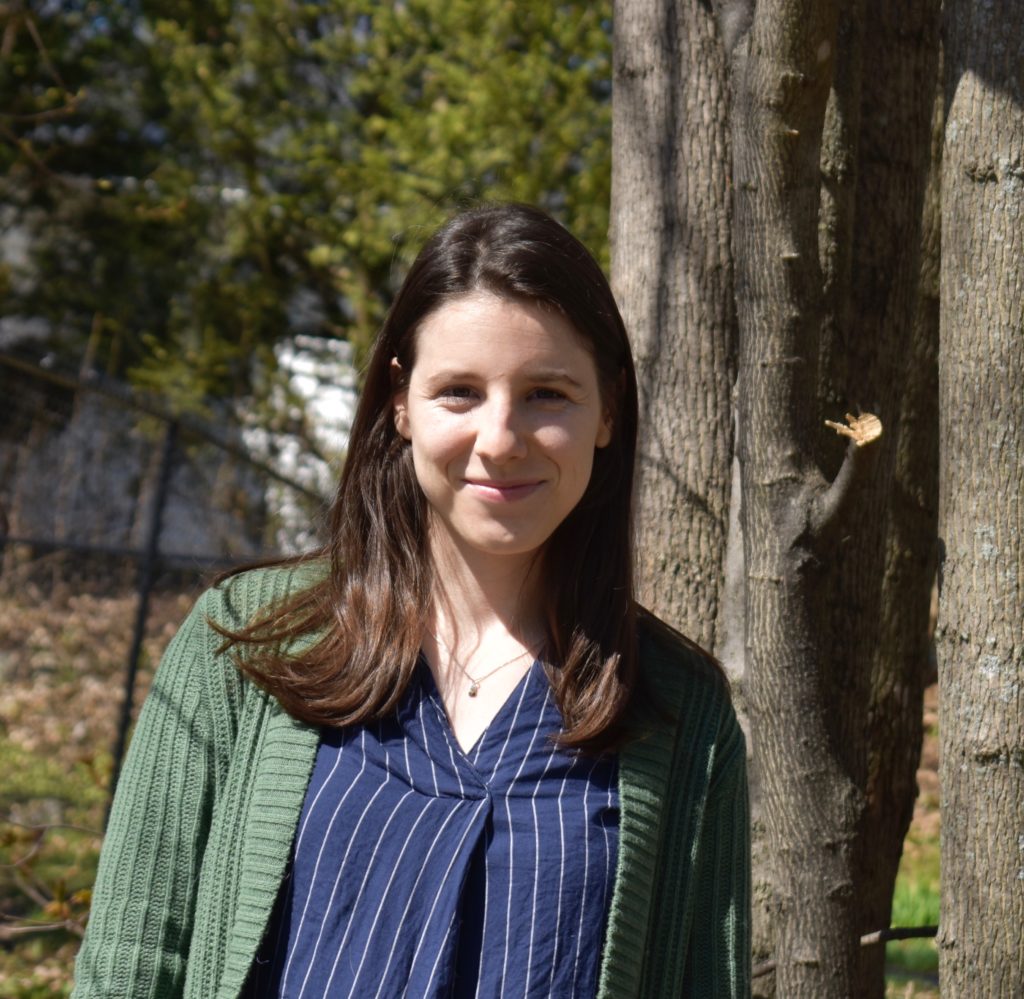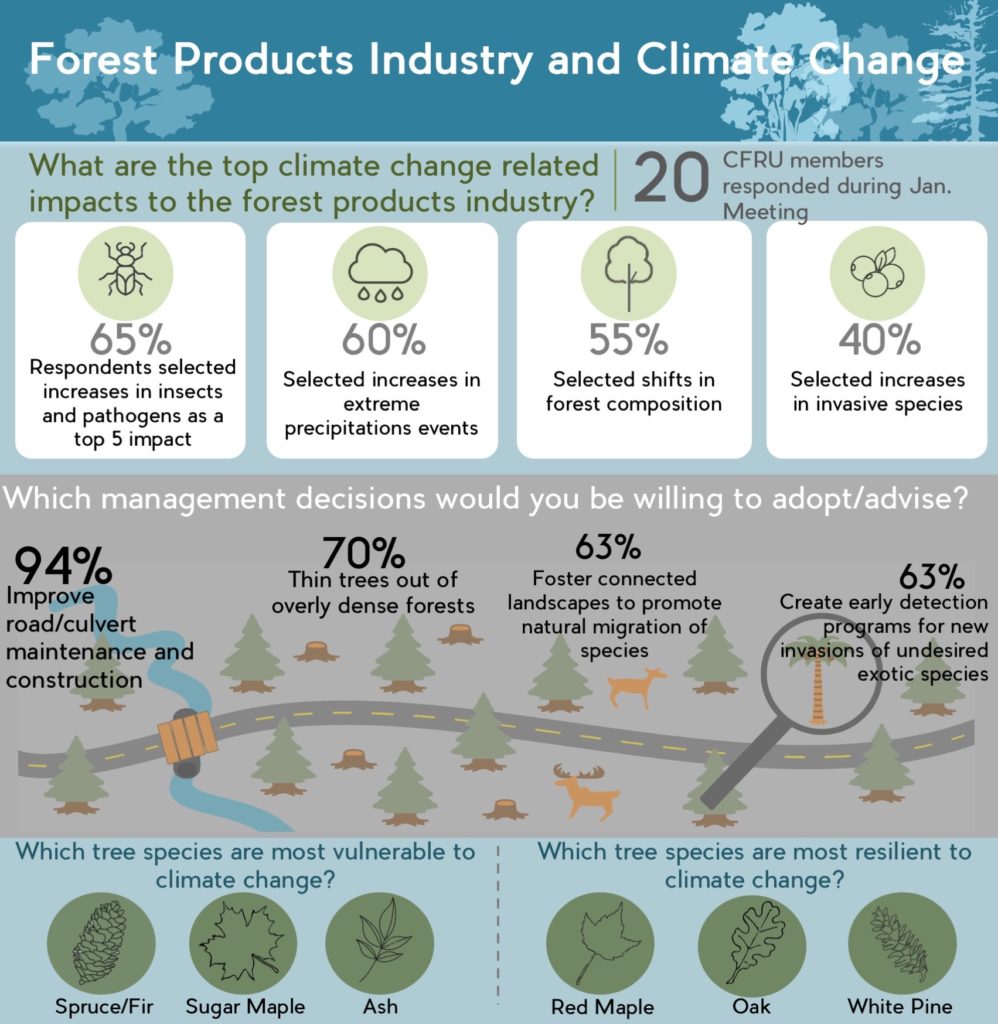Climate Change in Maine’s Forests – A Graduate Project
 Written by Alyssa Soucy, Guild student member
Written by Alyssa Soucy, Guild student member
Climate change impacts both human and ecological systems, making all who rely on natural resources highly sensitive. There is a diverse range of values and beliefs among individuals working in forested landscapes and among the people they serve. We must consider these diverse perspectives when communicating with different audiences about climate change adaptation (or coping and responding to change).
In Maine, the forest industry contributes to the state’s economy and supports many communities through job creation and social well-being. Impacts from climate change require the use of adaptation strategies to ensure the future of Maine’s forests. As part of my masters, I sought to understand perceptions of climate change impacts and adaptation among forestry professionals, as well as assess vulnerabilities to climate change in the state. This included stakeholder surveys, interviews, and the creation of spatial data products. The results of this research are being used to consider outreach strategies to communicate adaptation and help influence best management practices to cope with climate change impacts.
We found that forestry professionals are aware and concerned about the impacts of climate change on forests. Specifically, there was growing concern regarding insects and pathogens, extreme rainfall events, shifts in forest composition, invasive species, and changes in forest growth. However, despite experiences and concern with climate change impacts, there was hesitancy to formally incorporate climate change into the forest management planning process as a result of the uncertainty in climate change impacts and barriers to adaptation, (e.g. financial or time constraints). The vulnerability assessment also revealed regions in the state that may be more susceptible to a changing climate given the combination of biophysical impacts and community characteristics. A surprising result for myself, was the common perception of climate change as an opportunity for the forest industry given the positive impacts of increasing forest productivity.

Infographic shared with forestry professionals based on the results of a workshop conducted with stakeholders in Maine.
I began this project with a background in geosciences and very limited knowledge of social sciences. Through this work I have come to understand the value of incorporating human dimensions into natural resource management. Specifically, within forestry this means considering the diversity of stakeholder experiences, needs, and motivations. This project has sparked an interest in communication and message frames that appeal to the things people care most about. As I continue to work in environmental sciences I hope to further explore the importance of communication and learning in natural areas.
Funding support: This work was supported by the USDA National Institute of Food and Agriculture, McIntire Stennis through the Maine Agricultural & Forest Experiment Station under project number ME0-41504; AFRI Agriculture and Natural Resources Science for Climate Variability and Change (AFRI ANRCVC) Challenge Area Program under Grant number 2018-69002-27933; US Forest Service, State and Private Forestry under Grant number 17-DG-11420004-144; and the AVANGRID Foundation.
